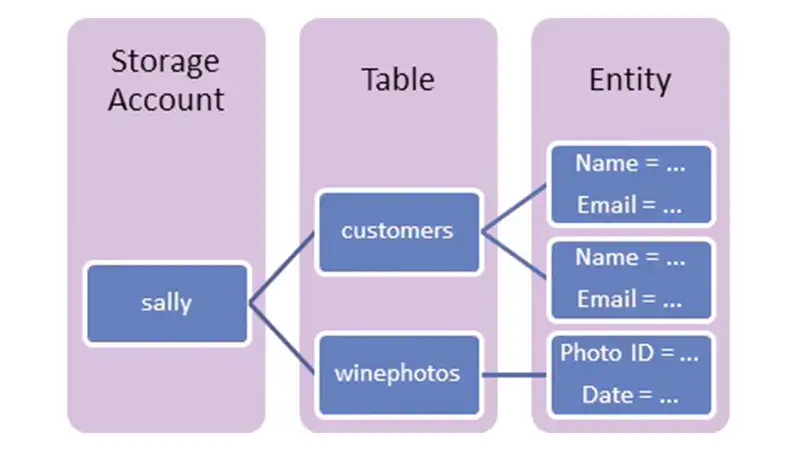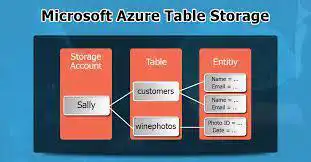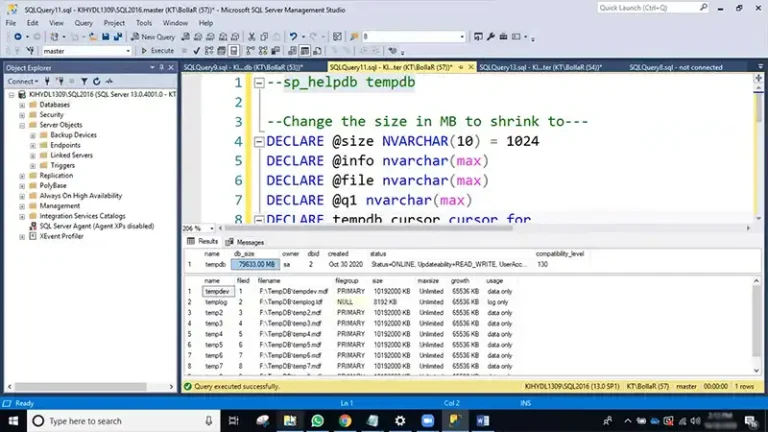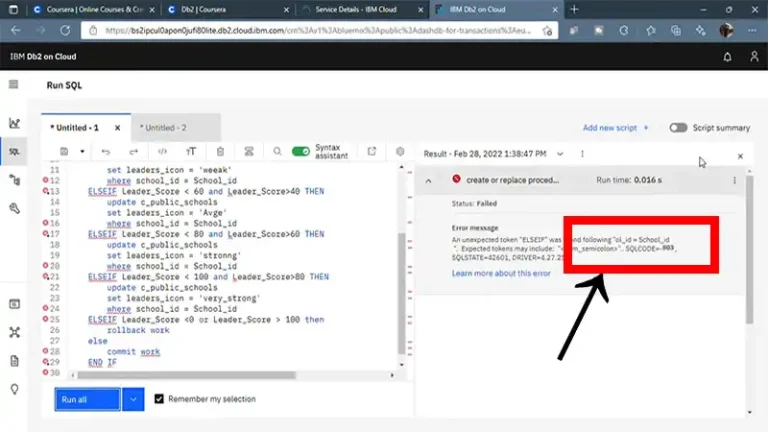What Kind of a NoSQL Store Is Azure Table Storage?
Azure Table Storage is categorized as a NoSQL data store, functioning primarily as a key-value repository.
Azure Table Storage stands as a distinctive NoSQL solution within Azure’s ecosystem, offering unparalleled scalability and adaptability. Unlike traditional databases, it operates without a fixed schema, making it ideal for handling diverse data types.
In this article, we’ll focus on the essence of Azure Table Storage.

What is Azure Table Storage?
Azure Table Storage is a fully managed NoSQL data store that enables the storage of structured and schema-less data in the cloud. Unlike traditional relational databases, Azure Table Storage does not require a fixed schema, allowing for flexibility in data organization.
It’s designed to handle massive amounts of data and can scale seamlessly to accommodate growing demands, making it an ideal choice for applications requiring high availability and scalability.

Image 1- Azure Table Storage
Key Features of Azure Table Storage
Azure Table Storage is a NoSQL data store offered by Microsoft Azure, providing key-value pair storage, scalable performance, and seamless integration within the Azure ecosystem. Here are its key features:
Schemaless Design
– Dynamic Schema: It allows you to store entities without a predefined schema, enabling flexibility in data modeling.
Scalability
– Horizontal Scaling: Easily scales to accommodate large volumes of structured data by distributing it across partitions.
– Performance: Scales automatically handle high volumes of transactions without compromising performance.
Cost-Effective
– Pay-As-You-Go Model: You’re billed based on storage used and operations performed, making it cost-effective for varying workloads.
– Low Operational Overheads: Simplifies administration and reduces infrastructure management overheads.
High Availability and Durability
– Replication: Data is replicated to ensure high availability and durability, even in the case of hardware failures.
– Geo-Redundancy: Offers options for geo-replication to ensure data redundancy across regions.
Querying Capabilities
– Rich Query Language: Allows querying using OData, facilitating powerful and flexible retrieval of data.
– Indexing Support: Enables efficient querying by indexing properties for faster access.
Security and Compliance
– Encryption: Supports encryption at rest and in transit, ensuring data security.
– Role-Based Access Control (RBAC): Granular control over access and permissions through Azure Active Directory integration.
Integration and Development
– SDKs and APIs: Provides SDKs for multiple programming languages (like .NET, Python, Java), making integration and development easier.
– Azure Ecosystem Integration: Seamlessly integrates with other Azure services like Azure Functions, Azure Logic Apps, etc.
Partitioning and Load Balancing
– Partitioning: Efficiently stores and retrieves data by using partition keys, allowing for optimal distribution and retrieval of data.
– Load Balancing: Automatically balances the load across partitions for improved performance.
Auto-Scaling and Performance Optimization
– Auto-Scaling: Automatically adjusts throughput based on demand to maintain performance.
– Performance Optimization: Allows tweaking settings to optimize for various use cases, balancing between cost and performance.
Azure Table Storage serves as a robust solution for storing semi-structured data, providing a balance between performance, scalability, and cost-effectiveness within the Azure cloud environment.
Use Cases
IoT Applications: Azure Table Storage is well-suited for IoT applications that generate vast amounts of sensor data. Its scalability and ability to handle high throughput make it an ideal choice for storing telemetry data.
Web Applications: It can serve as a backend data store for web applications, especially those requiring scalable and flexible data storage.
Logging and Analytics: Applications requiring log data storage or analytics can leverage Azure Table Storage due to its capability to handle large volumes of data and perform queries efficiently.
Limitations
While Azure Table Storage offers numerous advantages, it’s essential to consider its limitations. For instance, complex querying capabilities are limited compared to other NoSQL databases like Azure Cosmos DB. It’s optimized for specific use cases and might not fit scenarios requiring extensive querying or transactional support.
How does Azure Table Storage differ from traditional relational databases?
Unlike relational databases, Azure Table Storage doesn’t require a predefined schema, providing flexibility to store diverse data types without rigid structure constraints.
How is pricing structured for Azure Table Storage?
Azure Table Storage follows a pay-as-you-go model, billing based on the storage used and the operations performed, making it cost-effective for varying workloads.
Conclusion
Azure Table Storage presents itself as a robust NoSQL solution, offering scalability, flexibility, and cost-effectiveness for various applications. Its ease of use and integration within the Azure ecosystem make it an attractive choice for developers looking for a reliable and scalable data storage solution in the cloud.






